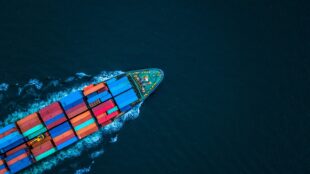
Compliance with financial sanctions is critical for all businesses including those in the maritime shipping sector. For maritime businesses, including shipping companies, port operators, insurers, and financial institutions, adhering to financial sanctions regulations requires a proactive and comprehensive approach given the complexity of the sector. Here are some key tips to stay compliant:
- Know Your Customer (KYC) and Due Diligence
Understanding your counterparties and conducting thorough due diligence is fundamental to compliance. Before engaging in any business transaction, maritime entities must verify the identity of their customers, partners, and third-party intermediaries. You may consider screening against sanctions lists, alongside other checks. The UK Sanctions List maintained by the Foreign, Commonwealth and Development Office lists all people, entities and ships designated or specified under regulations made under the Sanctions and Anti-Money Laundering Act 2018. OFSI also maintains the Consolidated List, providing information relating to asset freeze and investment ban targets across all financial sanctions regimes.
When conducting know your customer checks, it is important to consider all layers of ownership including any indications of control.
- Implement Robust Compliance Policies and Procedures
Establishing robust compliance policies and procedures tailored to the specific risks faced by the maritime industry is essential. These policies should outline clear guidelines for identifying, assessing, and mitigating sanctions-related risks across all aspects of operations, including vessel chartering, cargo handling, financial transactions, and supply chain management.
- Invest in Technology and Screening Tools
Utilising advanced technology and screening tools can enhance the effectiveness and efficiency of sanctions compliance efforts. Automated screening systems can assist in the identification of potential matches against sanctions lists, flag suspicious activities, and facilitate real-time monitoring of transactions and counterparties. However, when using such tools, it is important to remember that all entities still bear the ultimate responsibility to manage their sanctions risk.
- Conduct Ongoing Training and Awareness Programs
Educating employees about sanctions regulations, compliance obligations, and the importance of vigilance is crucial. Conducting regular training sessions and awareness programs can help foster a culture of compliance within the organisation, empowering staff to recognise red flags, report suspicious activities, and respond appropriately to compliance challenges.
- Maintain Vigilance and Stay Informed
Financial sanctions prohibitions and those subject to them are dynamic and subject to frequent changes. Maritime businesses must stay abreast of evolving sanctions regimes, regulatory developments, and enforcement actions to adapt their compliance strategies accordingly. Subscribing to relevant publications, participating in industry forums, and engaging with compliance experts can help organisations stay informed and proactive in their compliance efforts.
- Foster Collaboration and Information Sharing
Collaboration among industry stakeholders, regulatory authorities, and law enforcement agencies is essential for combating sanctions evasion and illicit activities in the maritime sector. Participating in information-sharing initiatives, industry associations, and public-private partnerships can facilitate the exchange of best practices, intelligence, and insights to strengthen collective efforts against sanctions breaches.
Navigating the complex waters of financial sanctions compliance in the maritime sector requires a combination of diligence, technology, and collaboration. By prioritising compliance, investing in robust systems and controls, and fostering a culture of integrity, maritime businesses can mitigate risks and contribute to a more secure global maritime ecosystem.
OFSI’s Maritime Shipping guidance is now available.